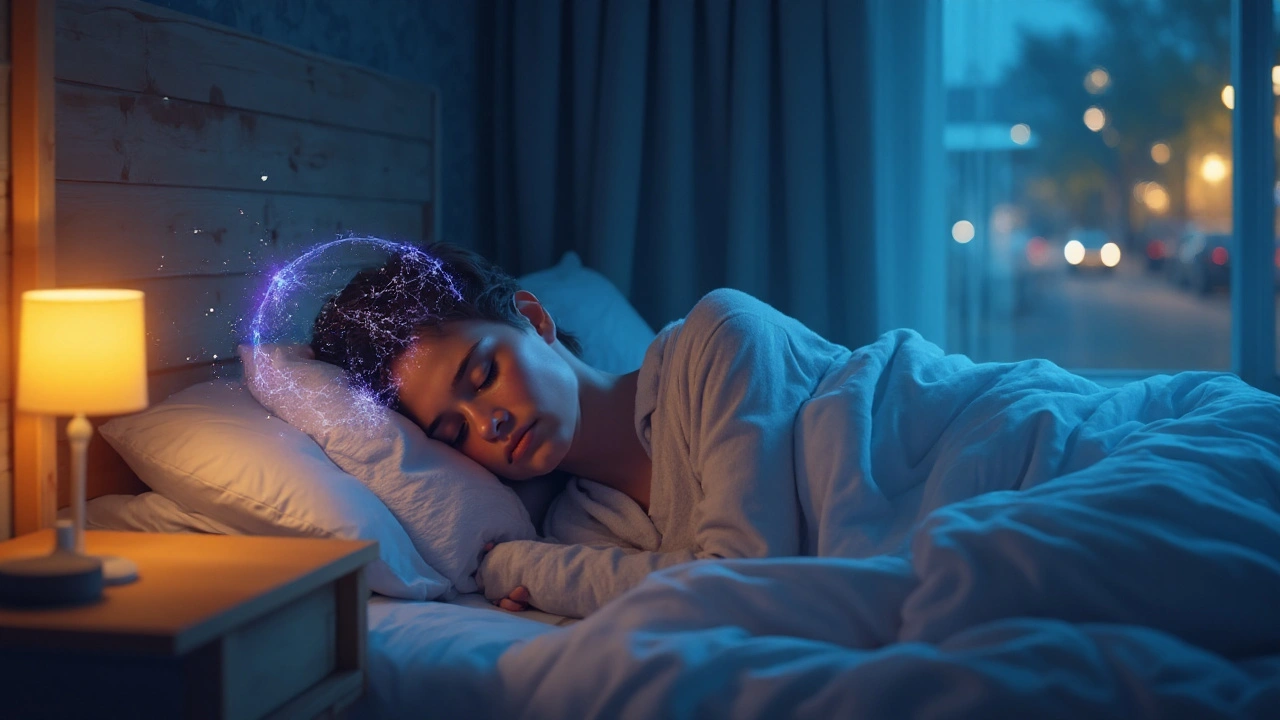Nocturnal Seizures: What Happens While You Sleep?
If you or a loved one wakes up shaking, confused, or with a strange taste in the mouth, you might be dealing with a nocturnal seizure. These episodes happen during sleep and often go unnoticed because the person is already in bed. Understanding the signs and triggers can keep the night from turning into a health scare.
Most night‑time seizures happen in the early part of the night, especially during the first few sleep cycles. The brain is transitioning between REM and non‑REM sleep, and that shift can spark abnormal electrical activity. It’s not always obvious—some people just feel unusually tired or have a morning headache.
Common Causes of Nighttime Seizures
Epilepsy is the top reason, but other factors play a role. Sleep deprivation, alcohol, or missed medication doses can lower the seizure threshold. Fever, especially in kids, can trigger a febrile seizure that sometimes starts after bedtime.
Bright screens before sleep, caffeine late in the day, and irregular sleep schedules also create an environment where the brain is more excitable. Even certain medications that affect the central nervous system can inadvertently spark night‑time episodes.
For people with known epilepsy, specific seizure types—like focal seizures that start in the temporal lobe—show up more often at night. Understanding your own seizure pattern helps you and your doctor pick the right treatment plan.
Tips to Reduce and Treat Nocturnal Seizures
First, stick to a consistent sleep routine. Go to bed and wake up at the same time every day, and keep the bedroom dark and cool. This steadies your brain’s natural rhythms.
Second, never skip your anti‑epileptic drugs. If you forget a dose, contact your doctor right away for guidance. A small missed dose can make the whole night risky.
Third, limit alcohol and caffeine after noon. Both can interfere with sleep stages and make seizures more likely.
Fourth, consider a seizure‑monitoring device. Some wearables vibrate when they detect abnormal movements, waking you up before a full seizure develops.
Finally, talk to your neurologist about adjusting medication timing. Sometimes taking a dose before bedtime helps keep seizure activity low during the night.
If you suspect a nocturnal seizure, keep a simple diary. Note the date, time you woke up, what you felt, and any triggers you can think of. This record is gold for your doctor when they fine‑tune your treatment.
In emergencies—like a seizure lasting more than five minutes, or if your loved one can’t breathe—call emergency services immediately. Quick action can prevent complications.
Living with nocturnal seizures isn’t a life sentence. With good sleep habits, medication adherence, and open communication with your healthcare team, you can protect your nights and enjoy more restful mornings.

How Sleep Affects Partial Onset Seizures: What You Need to Know
Explore the link between sleep and partial onset seizures, learn how different sleep stages influence seizure risk, and get practical tips for better sleep hygiene.
More Detail